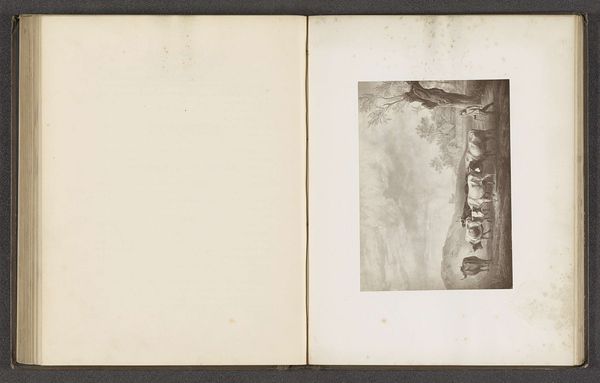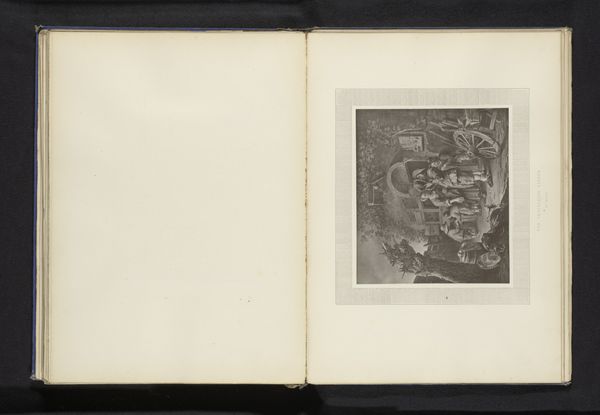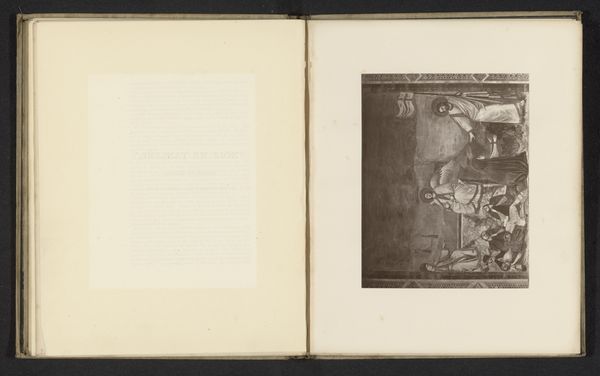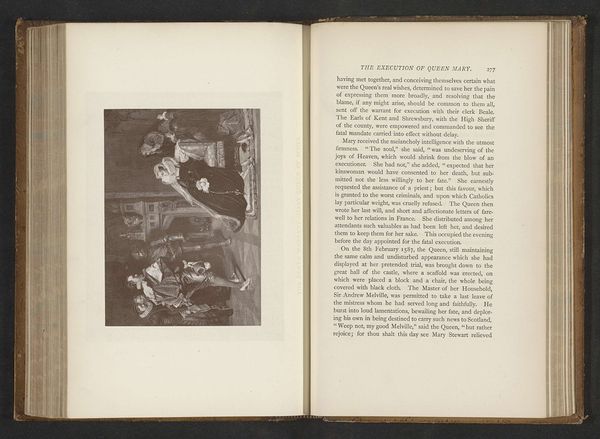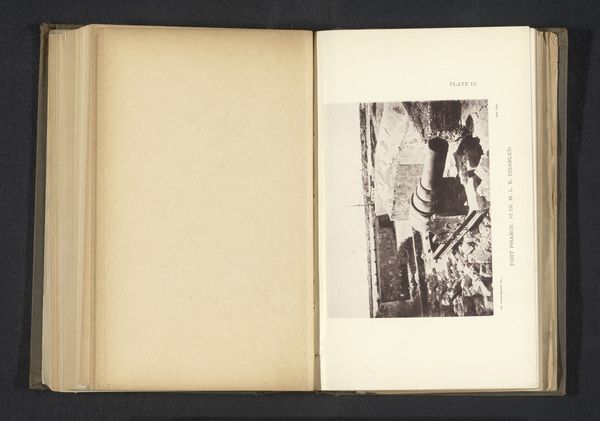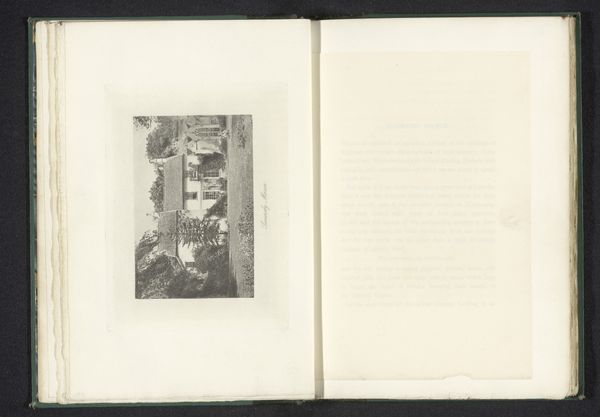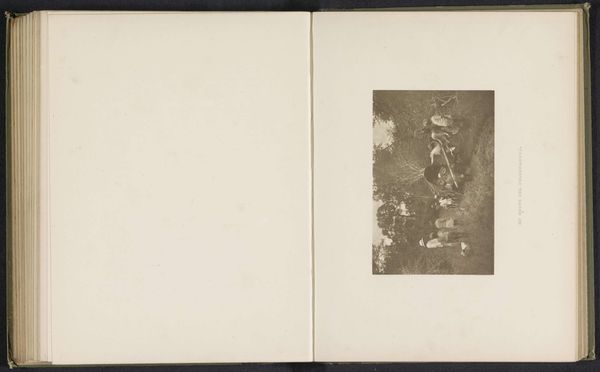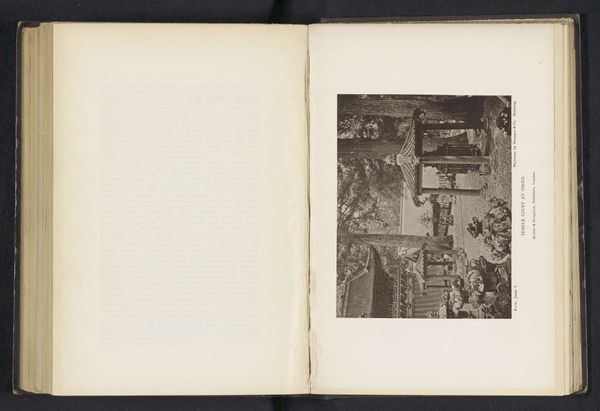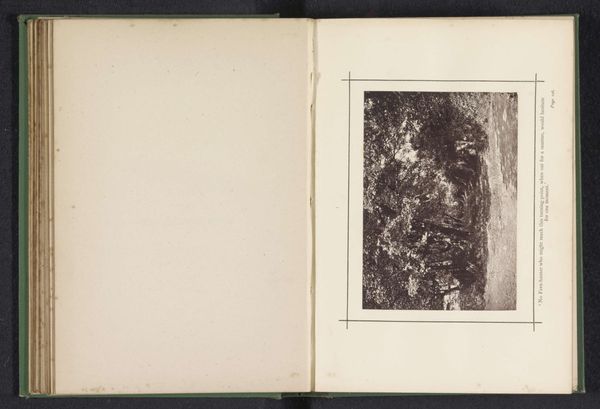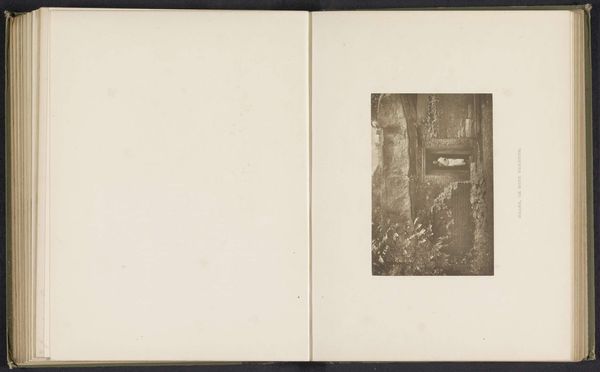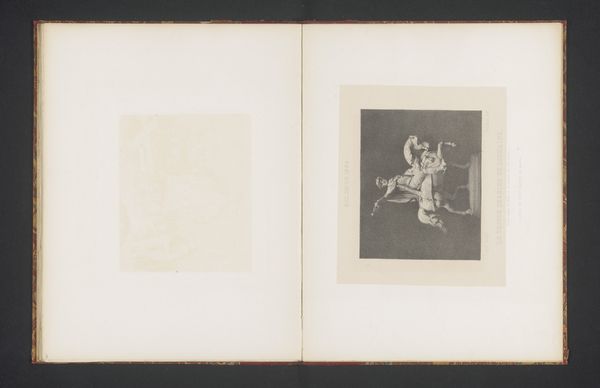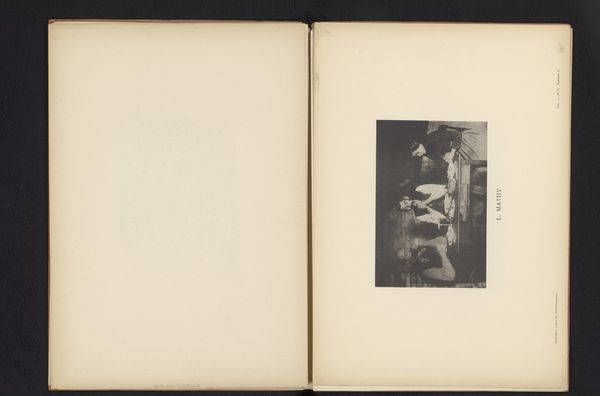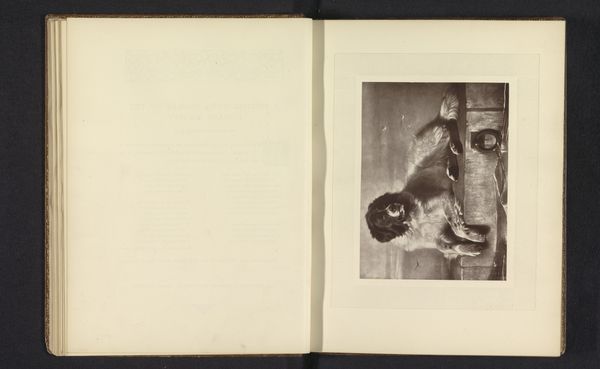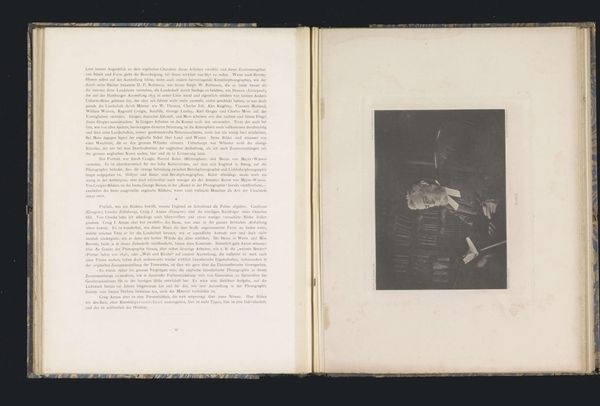
Fotoreproductie van een prent naar een schilderij, voorstellende een interieur van een herberg before 1869
0:00
0:00
anonymous
Rijksmuseum
#
aged paper
#
homemade paper
#
ink paper printed
#
sketch book
#
hand drawn type
#
paper texture
#
personal sketchbook
#
hand-drawn typeface
#
sketchbook drawing
#
sketchbook art
Dimensions: height 120 mm, width 176 mm
Copyright: Rijks Museum: Open Domain
Editor: Here we have a photorealistic reproduction of a painting depicting the interior of a tavern, dated before 1869. The lighting creates this incredible depth. What catches your eye about this piece? Curator: Well, consider what a tavern represented historically. It wasn't merely a place for leisure; it was a socio-political space, particularly for working-class men. Who was allowed into these spaces and who was excluded? How did factors such as class and gender shape the dynamics within these taverns? Editor: So, beyond the immediate visual, you’re prompting us to think about who held power within these social structures. Curator: Exactly. Look at how the figures are arranged, who's at the center, who seems marginalized. What narratives are being reinforced or challenged through this composition? Is the scene celebratory or does it depict another tension? Editor: I see your point! There’s something about the density of figures that feels almost claustrophobic now. It speaks to a lack of opportunity for people outside this space. Curator: Precisely. And remember, this is a *reproduction.* What does it mean to reproduce this image and offer it to a different audience? Does the meaning shift when this image is shared with, say, the upper classes of society? Editor: It reframes the conversation entirely, right? Taking a slice of life from a particular social stratum and displaying it elsewhere brings class disparities into sharper relief. Curator: And doesn't that invite us to examine the broader power dynamics at play during that time and perhaps even challenge some contemporary beliefs about how society operates? It goes to show art serves not merely as a mirror but also as a lens, revealing so much. Editor: It makes me rethink simple ideas around imagery; who is behind its production and circulation matters as much as what the work depicts.
Comments
No comments
Be the first to comment and join the conversation on the ultimate creative platform.
